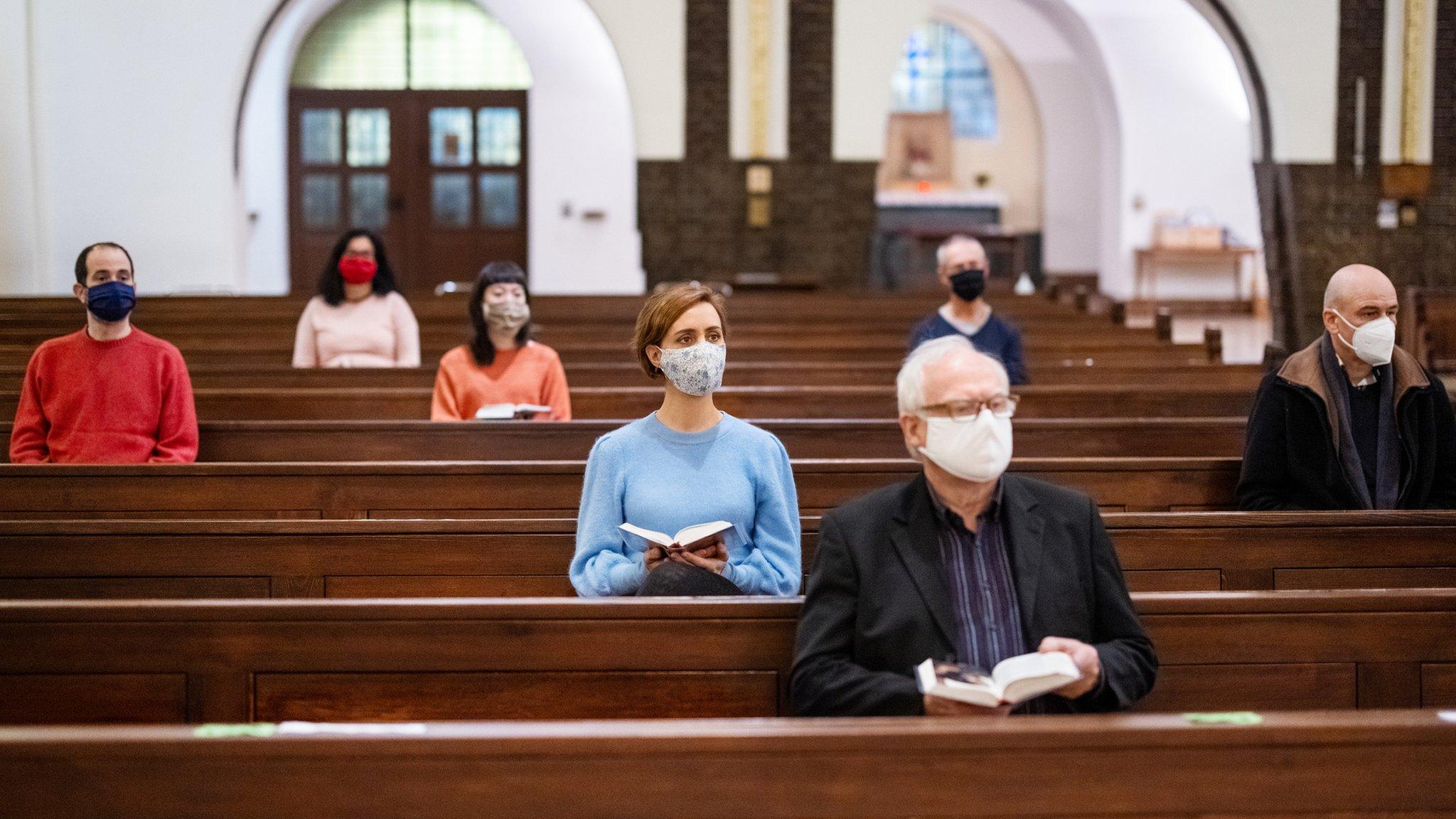Anglesey: Relatives' anger over church conversion plans
- Published
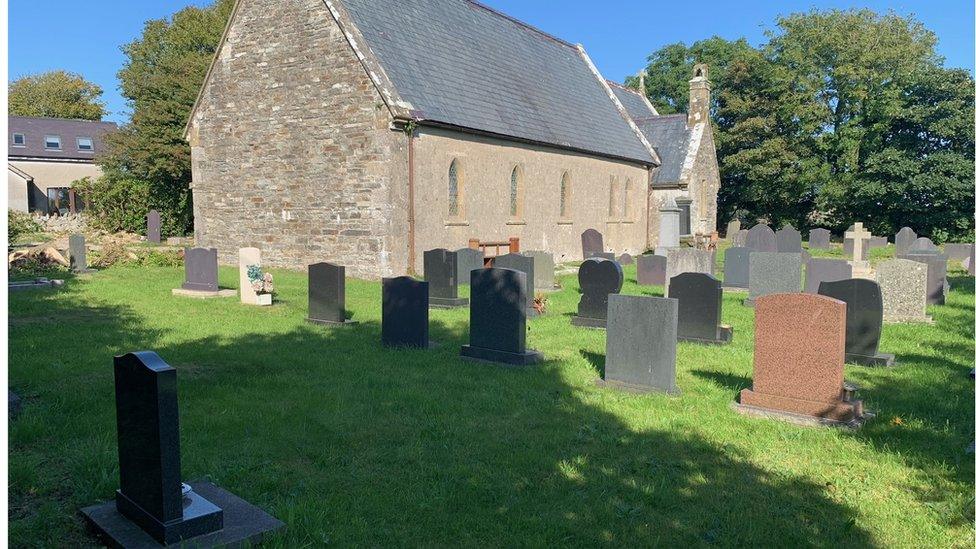
Christ Church is surrounded by a cemetery, which relatives still visit
Plans to turn an old Anglesey church into a home have been branded "immoral" by residents who visit family graves there.
Christ Church in Rhosybol closed in 1996 and, earlier this year, Anglesey council approved plans for it to be converted.
Some residents said more should have been done to oppose the changes to the church, which was built in 1875.
The Church in Wales said they first explored selling to a local group.
People with family members buried there said it was "wrong and disappointing", and that any new owner could potentially host parties adjacent to where their loved ones are buried.
Over many decades the surrounding graveyard has been filled on all four sides of the church, and the council said it had no reservations about the church being turned into a home as the graves are "at least one metre from the church".
'No respect'
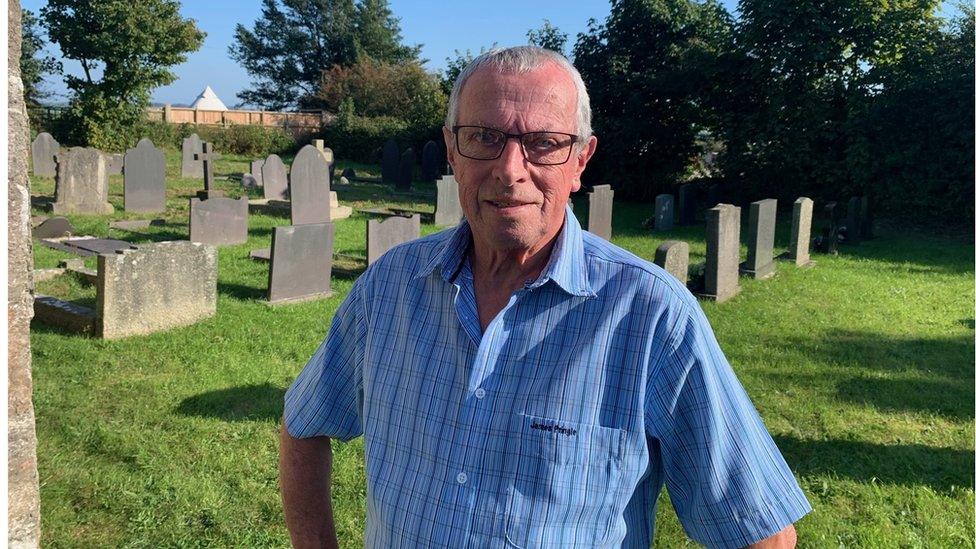
Gwilym Morris visits the graves of his parents and grandparents at the church
Gwilym Morris, who lives locally and is a member of the Rhosybol community council, has eight members of his family buried in the cemetery, including his mother, father and grandparents.
He said the church should not be converted and he was "very disappointed" the plans had been approved.
"As you can see the graveyard is still going, people still want to come here and some will want to be buried here," he said.
"It's difficult to describe. When you imagine someone will live here and they can hold parties, I have difficulty getting my head around that.
"The church is surrounded by graves and it doesn't fit in somehow.
"I'm disappointed that you can do this without showing respect."
The community also found previous parish records showing about 20 infants were buried there in the previous century without receiving gravestones.
'I want them to be left in peace'
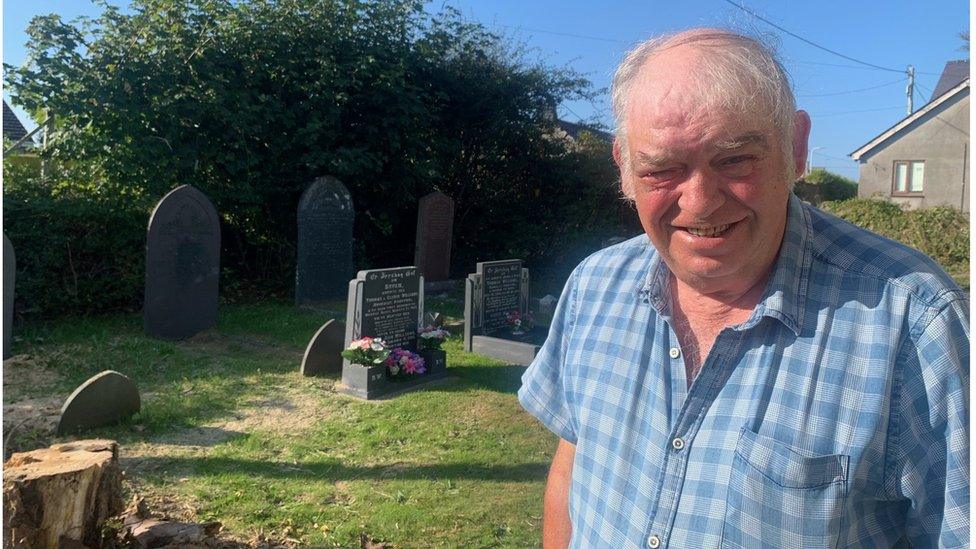
William Hughes said people buried in the cemetery should be left in peace
Residents including William Hughes, who also has family member buried there, said individuals were being forgotten.
He said he was not angry with the idea of converting churches but the proximity of the graveyard made this case different.
"I'm very concerned", he said.
"When they [the infants] were buried there was no service and we now have no idea where they were buried.
"I think the world of Rhosybol and my grandmother and grandfather are buried here and I want them to be left in peace as well as other people here."
He added the Church in Wales' decision not to comment during the planning process was "surprising".
'Questions to answer'
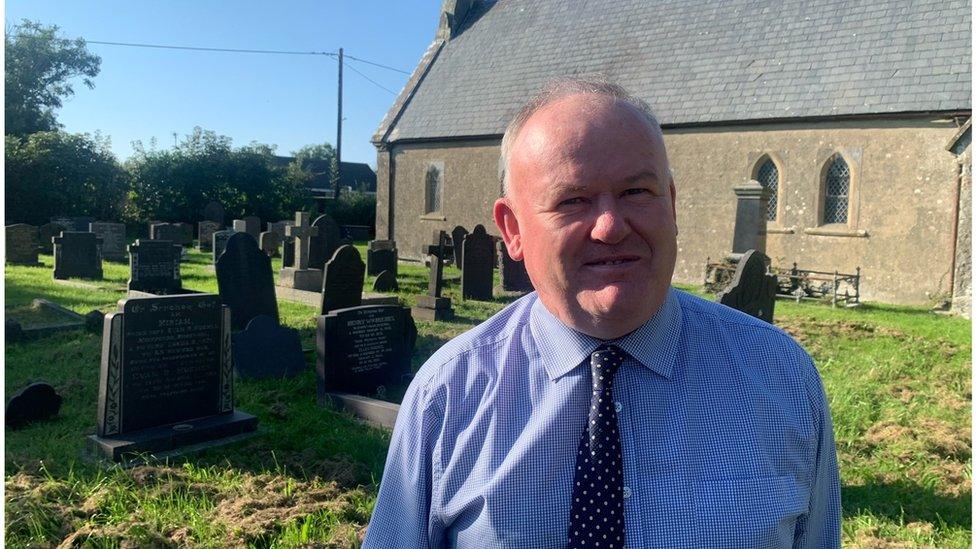
Community councillor Aled Morris Jones said there were many questions to answer over the decision
Although the church is now private property, the surrounding land where the graveyard is situated is available for the public to use and visit as it belongs to the Church in Wales.
But there are further fears the plans are not appropriate, councillor Aled Morris Jones says.
"I think the Church in Wales has many questions to answer and that there should be an inquiry into how they have sold this admittedly redundant church," he said.
"It is surrounded on all sides with graves and this graveyard is still in use for burials.
"People feel very upset, they are concerned. It's the process, the morality of doing such a thing."
Anglesey council said at the time of the application "the Church in Wales had no comments to make in the proposal".
"There was no reason for us to refuse the application," said the council.
The Church in Wales said they first explored selling Christ Church to a local community group before they sold it 2019.
"The graveyard remains open for burials and internments in existing plots where there is space," said a church statement.
"We are committed to ensuring it stays a place of sanctity and where people from the community are welcome.
"We have imposed restrictive covenants on the building and the land that has been sold and we will enforce these in the event of any breach in the future.
"We are concerned about claims made, since the sale, about possible unmarked or unrecorded burials in the area of the graveyard which has been sold. We are currently investigating the matter."

NANI KNOWS BEST: Parenting hacks from the women that raised us
ITALIAN CAFE CULTURE: Why is this Welsh tradition struggling to survive?

- Published9 March 2021
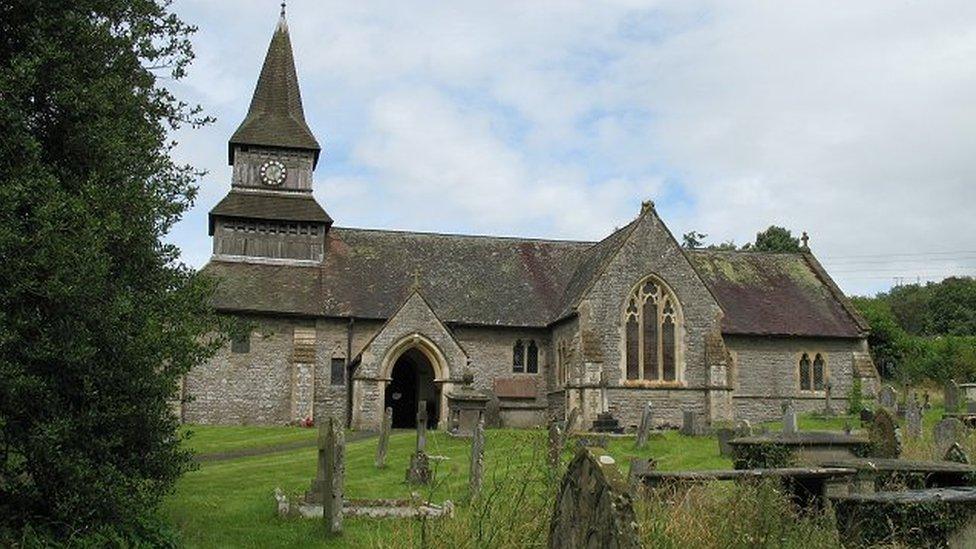
- Published8 January 2021
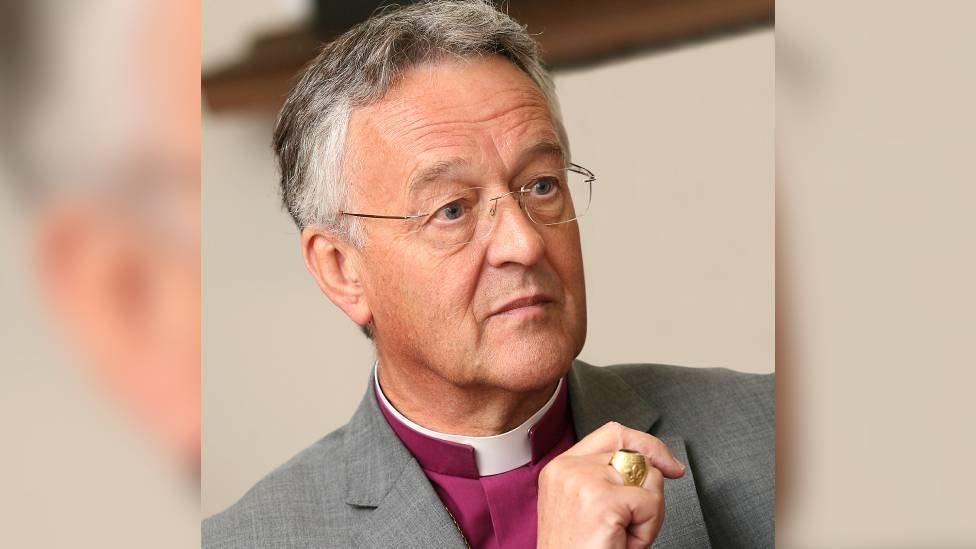
- Published6 September 2021
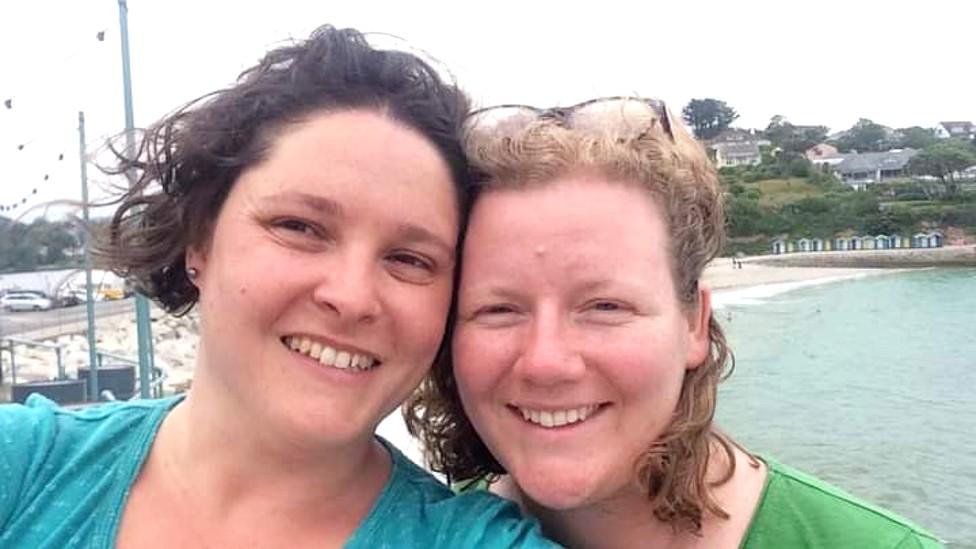
- Published19 June 2021
